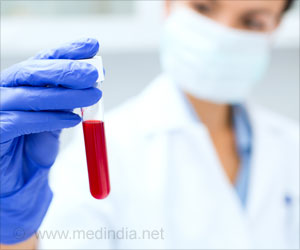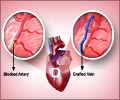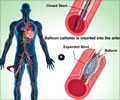Q: Which specialist should I consult for acute coronary syndrome?
A: You should consult a cardiologist.
Q: Can one enjoy a normal life after ACS or how to prevent repeat attack?
A: People who have suffered ACS are at higher risk for a repeat attack. However, keeping BP less than 130/80 mm of Hg, maintaining BMI between 18.5-24.9, avoiding smoking, keeping triglyceride levels in check and regular physical exercises for 30-60 minutes daily can greatly contribute to normalcy. Low dose aspirin and beta blocker drugs may also be recommended on a daily basis.
Q: What is acute coronary insufficiency?
A: It is a sudden life-threatening condition where there is reduced blood supply to the arteries supplying the heart. This can result in angina if blockage is partial and heart attack if there is death of cardiac muscle.
Q: Is the incidence of ACS same for males and females?
A: Men have a greater risk for coronary artery disease and are more likely to have heart attacks earlier in life than women. Women’s risk for heart disease increases after menopause.
Q: What is silent ischemia?
A: Some people with severe coronary artery disease do not have angina pain. This condition is known as silent ischemia. This is a dangerous condition because patients have no warning signs of heart disease. Some studies suggest that people with silent ischemia experience higher complications and mortality rates than those with angina pain.
Q: Is there a relation between genetic factors and ACS?
A: Genetic factors increase the likelihood of developing diabetes, elevated cholesterol and high blood pressure. These are important risk factors in the occurrence of ACS.
Q: Do only overweight people suffer from heart problems?
A: People who are overweight are more likely to have high blood pressure, high cholesterol levels and a chance of developing Type II diabetes. All these increase the heart workload thereby increasing the chances of developing a blockage in blood flow to the heart.
Q: How does smoking affect ACS?
A: Smoking raises blood pressure and causes the blood to clot more easily, thereby putting the heart at risk.
Q: Why is it essential to control the cholesterol levels in the body?
A: High levels of cholesterol cause fatty plaques to build up in blood vessels. This restricts blood flow to the heart and can cause a heart attack.
Q: How does high blood pressure affect ACS?
A: High blood pressure stresses the heart. This causes thickening of the walls and increase in the size of the heart. Also, the thickened muscle walls make it harder for the heart to pump out blood. Insufficient blood supply may result in ACS.
Q: Is sexual activity safe after ACS?
A: Sexual activity after a heart attack is generally considered safe. Also, the feelings of intimacy and love that accompany healthy sex can help counteract depression.











